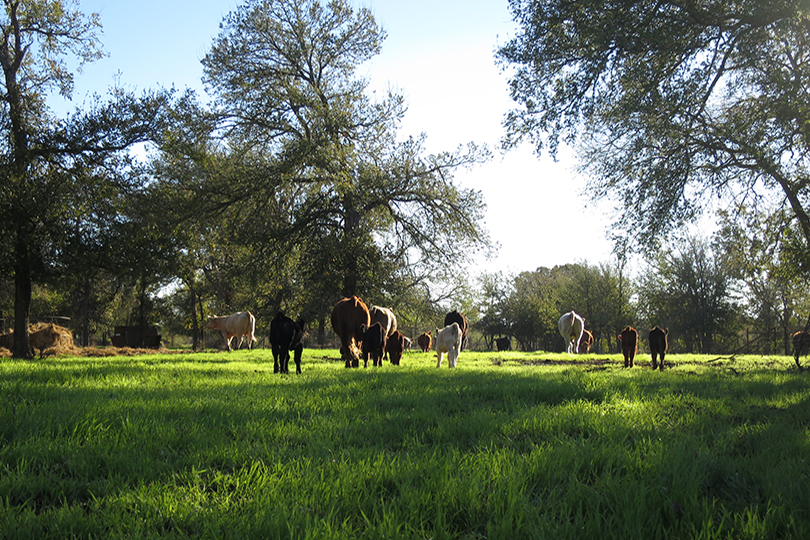This time of year, cattlemen and women should be weary of a disease caused by low levels of magnesium.
Dr. Bob Judd, host of Texas Vet News on the Texas Farm Bureau (TFB) Radio Network, reports that grass tetany may cause increased excitability, muscle twitching, frequent urination, grinding of the teeth, staggering, stiff gait and collapsing.
“These cattle will also attack objects and even people that they would normally not attack when affected with grass tetany and many of these cattle may not survive,” Judd said.
Cattle can be treated with intravenous magnesium, but Judd reports that many times the cattle do not respond.
“Also, it is difficult to treat the cattle when mild symptoms are present because trying to put them in a chute to give them an intravenous injection usually stresses them too much and causes them to go down,” he said.
Prevention is a much better option to treating grass tetany.
According to Judd, it requires supplementation of magnesium in the feed.
“Some of the magnesium supplements are not very palatable and cattle will not eat them so it is important to make sure your cattle are eating the magnesium supplement and this may require mixing it with a food source that they will readily eat,” Judd said.
The reason cattle develop a magnesium deficiency is because they do not absorb magnesium well and are even three times worse at absorbing magnesium compared to other ruminants like sheep and goats.
“Since magnesium is not stored in the body, daily intake in the feed is important and fasting decreases the magnesium level so this is one reason transport and bad weather seem to increase cases of grass tetany,” Judd said.
This time of year, an increased number of cases also are seen as lactating cattle are losing a lot of magnesium in the first milk and this makes cattle that are in late pregnancy and nursing a calf more susceptible to grass tetany.

